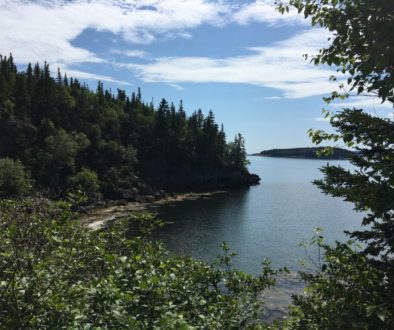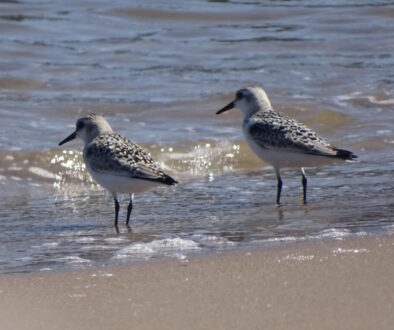News Release: Environmental Group, Wildlife Researchers Deeply Concerned
Environmental Group, Wildlife Researchers Deeply Concerned New Brunswick Forest Strategy Going Below Limit of Sustainability
(Fredericton) – Wildlife biologists are adding their voice to that of the Canadian Parks and Wilderness Society in expressing serious concerns with the New Brunswick government’s new direction for Crown forest management, announced yesterday.
Roberta Clowater, Executive Director of Canadian Parks and Wilderness Society – NB Chapter (CPAWS NB) says, “The government is taking away more than one-quarter of the amount of our public land that used to be specially managed to conserve fish, wildlife habitat and protect our rivers, and they are giving it over to increased logging, including clearcutting. This is a regressive plan that takes us backwards thirty years, and leaves us behind every other province in Canada.”
Two years ago, on March 30, 2012, the Minister of Natural Resources announced a plan that was supposed to conserve a minimum amount of habitat for wildlife, and appropriate buffers along rivers and streams. That plan would have maintained 28{a3162b1395e34f5bc6dd788a255c8e2a209e2a614c3b42176989b624267eff88} of Crown forest with a conservation priority – barely enough to conserve healthy wildlife populations and old forests. The 2012 plan would have reduced clearcutting in certain Acadian mixed-forests, and reduced the amount of wood logged from hardwood stands to make sure there will be enough hardwoods to log in the future.
The new forest strategy will reduce conservation forest to 23{a3162b1395e34f5bc6dd788a255c8e2a209e2a614c3b42176989b624267eff88} of Crown land, a one-quarter reduction from the current 31{a3162b1395e34f5bc6dd788a255c8e2a209e2a614c3b42176989b624267eff88}. Researchers are very concerned that it will be difficult to maintain viable populations of all our wildlife under such a plan.
Tony Diamond, Research Professor of Wildlife Ecology at the Biology Department and Faculty of Forestry and Environmental Management at UNB says, “They are knowingly going below the threshold of what is sustainable – going below the amounts of forest land government wildlife managers have in the past said were necessary to allow wildlife to thrive and for our rivers to flow clean, cold and with even flows. What is at risk goes beyond wildlife and rivers. We are risking the very ecological health of the forest resource upon which we have built a significant portion of our economy. ”
Roberta Clowater says, “Government is deliberately going against what the public has said they want from our Crown lands. The public, through the Select Committee on Wood Supply hearings in 2003, and through the largest survey ever done about public views on forests in New Brunswick, said clearly they want government to focus on conserving rivers, water supplies, and wildlife, and then allow forest harvesting that is consistent with these priorities. The New Brunswick government’s decision does the opposite. They are deciding how much wood is wanted by industry, and reducing conservation measures to allow that to happen.”
“We can no longer claim to be balancing industrial forestry with conservation, as the premier recently did in his annual State of the Province speech. Balance implies that there is enough for all the needs, and fairness in the way that land is allocated. Government is ignoring extensive research that shows we need at least the amount of conservation forest we have now, and likely more, to balance off the risk of the industrial activities that happen on Crown land – forestry, mining, agriculture, wind farms, and numerous other new uses that are being approved for public land,” says Dr. Marc-André Villard, Professor of Biology at the Université de Moncton.
“If managed sustainably, a diverse forest can provide the flexibility to respond to changing product needs and changing world economy, and stands a better chance to withstand the impacts of climate change. This is not simply a question of balancing diverse interest groups. We are very concerned that the forest ecosystem will not be able to sustain this amount of pressure,” says Roberta Clowater.
-30-
Contact:
Roberta Clowater, 506-452-9902; cpawsnb@nb.sympatico.ca
Marc-André Villard, 506-858-4292; marc-andre.villard@umoncton.ca (bilingual)


